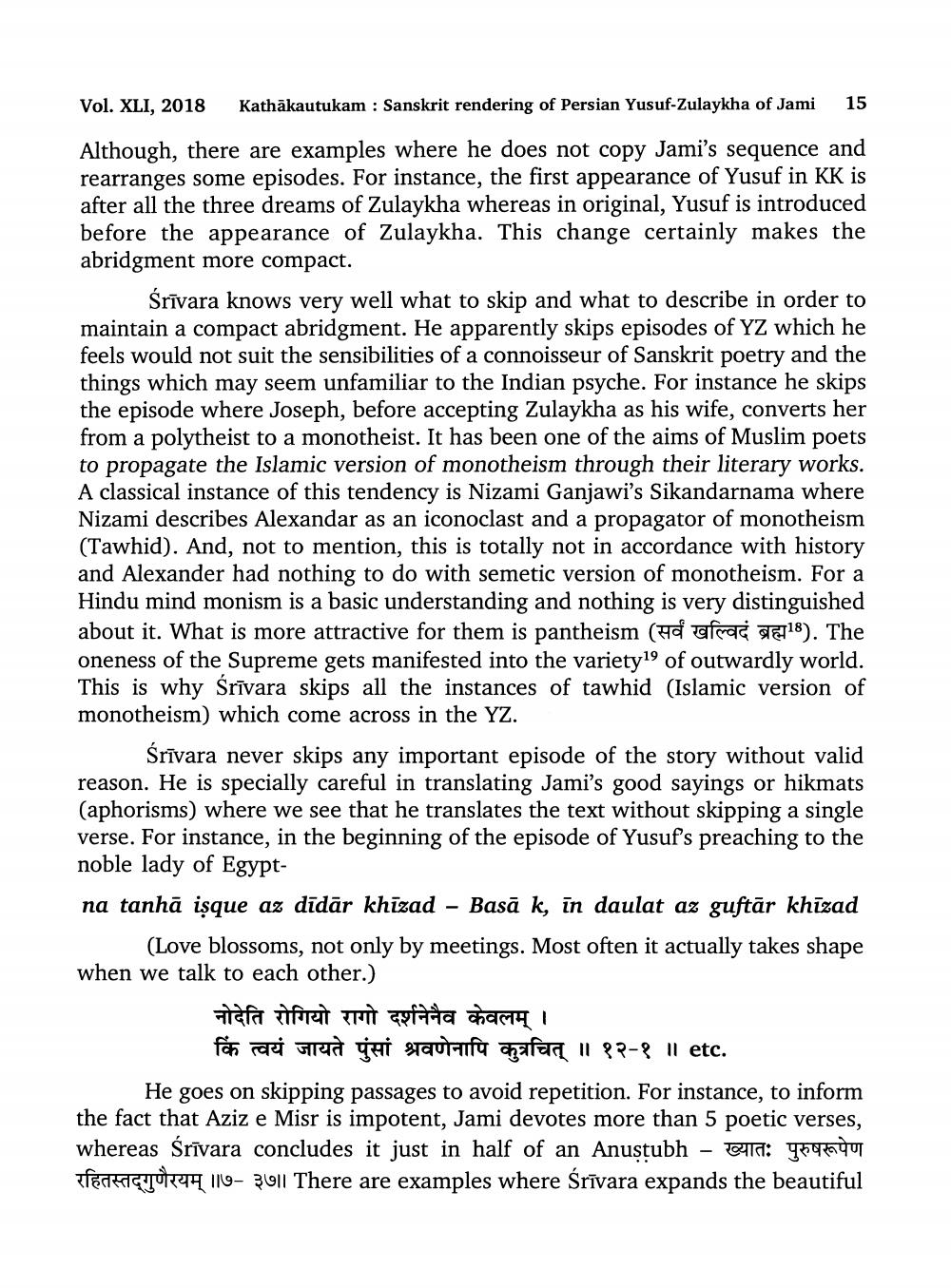________________
Vol. XLI, 2018
Kathākautukam : Sanskrit rendering of Persian Yusuf-Zulaykha of Jami
15
Although, there are examples where he does not copy Jami's sequence and rearranges some episodes. For instance, the first appearance of Yusuf in KK is after all the three dreams of Zulaykha whereas in original, Yusuf is introduced before the appearance of Zulaykha. This change certainly makes the abridgment more compact.
Śrīvara knows very well what to skip and what to describe in order to maintain a compact abridgment. He apparently skips episodes of YZ which he feels would not suit the sensibilities of a connoisseur of Sanskrit poetry and the things which may seem unfamiliar to the Indian psyche. For instance he skips the episode where Joseph, before accepting Zulaykha as his wife, converts her from a polytheist to a monotheist. It has been one of the aims of Muslim poets to propagate the Islamic version of monotheism through their literary works. A classical instance of this tendency is Nizami Ganjawi's Sikandarnama where Nizami describes Alexandar as an iconoclast and a propagator of monotheism (Tawhid). And, not to mention, this is totally not in accordance with history and Alexander had nothing to do with semetic version of monotheism. For a Hindu mind monism is a basic understanding and nothing is very distinguished about it. What is more attractive for them is pantheism (Ho Ciro 18). The oneness of the Supreme gets manifested into the variety of outwardly world. This is why Śrīvara skips all the instances of tawhid (Islamic version of monotheism) which come across in the YZ.
Śrīvara never skips any important episode of the story without valid reason. He is specially careful in translating Jami's good sayings or hikmats (aphorisms) where we see that he translates the text without skipping a single verse. For instance, in the beginning of the episode of Yusuf's preaching to the noble lady of Egyptna tanhā işque az dīdār khīzad - Basā k, in daulat az guftār khīzad
(Love blossoms, not only by meetings. Most often it actually takes shape when we talk to each other.)
नोदेति रोगियो रागो दर्शनेनैव केवलम् ।।
foto carvi ured jai tautaifa aparare il 87-8 Il etc. He goes on skipping passages to avoid repetition. For instance, to inform the fact that Aziz e Misr is impotent, Jami devotes more than 5 poetic verses, whereas Srivara concludes it just in half of an Anustubh - ख्यातः पुरुषरूपेण रहितस्तद्गुणैरयम् ॥७- ३७|| There are examples where Srivara expands the beautiful




